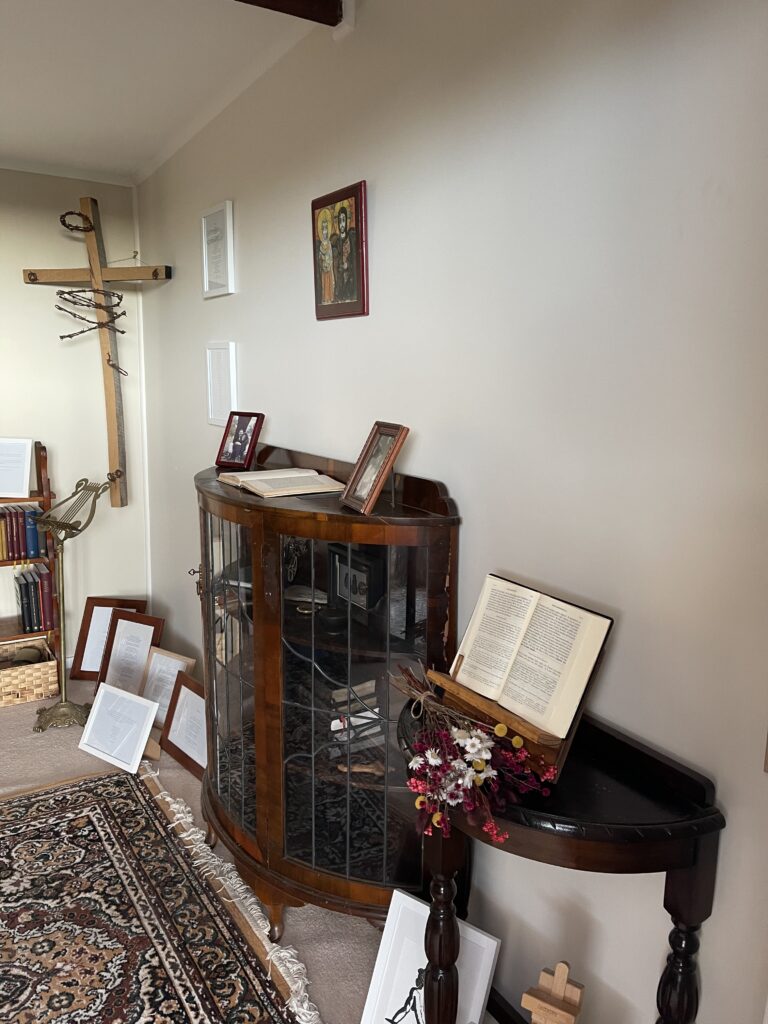A reflection on Romans 4:13-25 for the Second Sunday in Lent, February 28, 2021.

For the promise that he would inherit the world did not come to Abraham or to his descendants through the law but through the righteousness of faith. If it is the adherents of the law who are to be the heirs, faith is null and the promise is void. For the law brings wrath; but where there is no law, neither is there violation.
For this reason it depends on faith, in order that the promise may rest on grace and be guaranteed to all his descendants, not only to the adherents of the law but also to those who share the faith of Abraham (for he is the father of all of us, as it is written, ‘I have made you the father of many nations’)—in the presence of the God in whom he believed, who gives life to the dead and calls into existence the things that do not exist. Hoping against hope, he believed that he would become ‘the father of many nations’, according to what was said, ‘So numerous shall your descendants be.’ He did not weaken in faith when he considered his own body, which was already as good as dead (for he was about a hundred years old), or when he considered the barrenness of Sarah’s womb. No distrust made him waver concerning the promise of God, but he grew strong in his faith as he gave glory to God, being fully convinced that God was able to do what he had promised. Therefore his faith ‘was reckoned to him as righteousness.’ Now the words, ‘it was reckoned to him’, were written not for his sake alone, but for ours also. It will be reckoned to us who believe in him who raised Jesus our Lord from the dead, who was handed over to death for our trespasses and was raised for our justification.
Romans 4:13-25 (NRSVA)
Foundations are important. They support the structure. They orientate the final building. They ofter longevity.
Paul, in writing to the Romans, goes back to the foundations. He is exploring the deep ways that the community of God has come to be.
Clearly he believes he has dug deeper than the myriad of laws offered by the religious leaders of his time. He excavation has taken him deeper than the law of Moses.
Paul has gone to the very bedrock of the church.
And there he has found faith. Trust in the promise of YHWH is what the community of Jesus builds on.
Paul identifies in the account of Abraham one who has believed. The patriarch’s story insists that this is far more than intellectual ascent to the existence of God.
It really is ‘trust’ in God.
After all, Abraham’s faith was not that he could put forward a convincing argument for the voice of God. He did not simply write a paper defending the speaking deity.
Far from it. Abraham trusted the promise – the covenant – that God made.
I love that Paul speaks of Abraham’s unwavering faith in this promise of a son and heir. It seems to me to be such a gracious and generous assessment of Abraham’s trust.
After all, this is the man who slept, at the behest of his wife, with her servant girl in order to gain a son to bring about YHWH’s promise. Later he pleads with God to use Ishmael to fulfil the covenant. It all seems to have prompted God’s appearance at the beginning of Genesis 17. A second telling of the same promise.
Yes, Abraham had his doubts. He had moments of weakness as he assessed the likelihood of a wriggling infant being born to Sarah.
So what do we make of Paul’s confident words, ‘No distrust made him waver concerning the promise of God, but he grew strong in his faith as he gave glory to God, being fully convinced that God was able to do what he had promised.’?
The only way I can marry these two accounts is to highlight Abraham – not as one who refused to believe the covenant – but as one who tried to fulfil it. The Ishmael saga is not one of ignoring God’s promise but one of trying to see it come about. We can see this as an attempt to fulfil rather than ignore – God’s promise.
Perhaps we might say Abraham went about this in the wrong way. Even so, it is an act of faith.
I also am encouraged by Paul’s observation that Abraham’s faith ‘grew strong’. Yes, Abraham was not instantly a giant of the faith. Like you and me, his trust grew.
This is this kind of faith that founds ours. Our bedrock is a learning and growing reliance on God. Each moment of trust gives us reason to trust again – and more.
Yes, we can become, like Abraham, ‘fully convinced’ of the ability of God to do far mare than we can imagine. Indeed, this is the one who will multiply our small acts of trust in the one who handed Jesus over – and bought him back from the dead – for us.
Conversation Starters:
What do you make of Paul’s generous assessment of Abraham’s faith in God? What might this say about God’s grace toward us?
If there is merit in this perspective, what does such grace than ask of us? How should a people so graciously treated that others?
Jesus told stories about ‘mustard seeds’ and small amounts of ‘leaven’ when he described faith. What are the parallels between these accounts and Paul’s approach to Abraham?